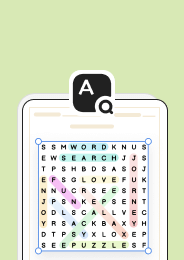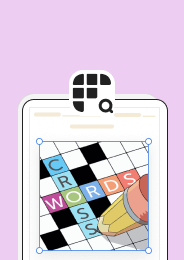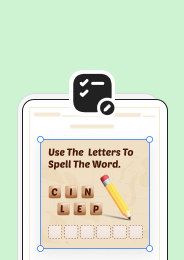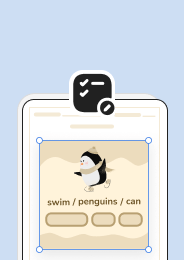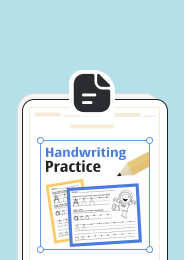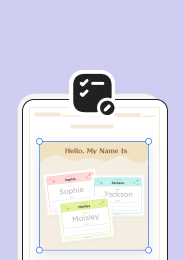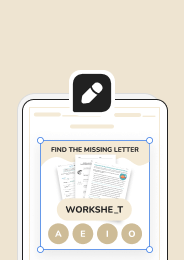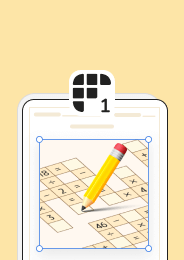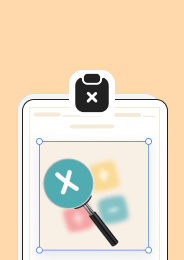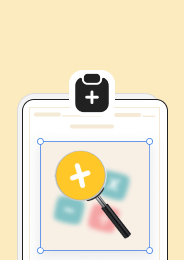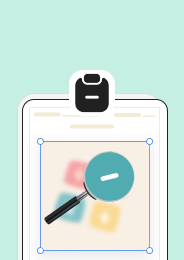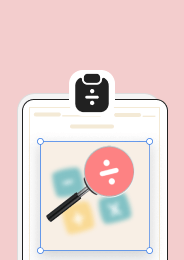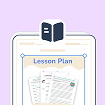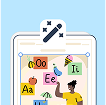Spelling errors are more common than you think! For teachers, helping students master the most commonly misspelled words is essential for building strong writing skills. Many young learners struggle with tricky spellings due to silent letters, confusing rules, or similar-sounding words. By identifying these frequent mistakes, you can guide your students toward better spelling habits and clearer communication. In this guide, we’ve compiled a list of 50 of the most commonly misspelled words, along with tips to help students remember their correct spelling. Use these resources to make spelling lessons more effective and engaging!
50+ Most Commonly Misspelled Words
Here is the summary table of 50 frequently misspelled words and their correct spellings:

Breakdown of commonly misspelled words:
- Accommodate – To provide lodging or space for someone.
- Common misspellings: accomodate, acomodate.
- Tip: This word is tricky because it has two sets of double letters—“cc” and “mm.” To remember this, think of “a hotel needs to accommodate guests with extra rooms (double letters).”
- Acknowledgment – Recognition of something.
- Common misspelling: acknowledgement (British English keeps the “e,” but American English does not).
- Tip: The word comes from “acknowledge,” but when adding “-ment,” the silent “e” is dropped in American English.
- Beleaguered – Troubled or under pressure.
- Common misspelling: beleagured.
- Tip: The tricky part is “ea” before “guer.” Think of “Beleaguered people feel surrounded, just like the many vowels in the middle of this word.”
- Believe – To accept as true.
- Common misspelling: belive.
- Tip: Follow the “i before e except after c” rule. Also, remember “Believe in yourself.” The word “lie” is inside “believe”—just like people sometimes tell lies when they pretend to believe something!
- Calendar – A system of organizing days and months.
- Common misspelling: calender.
- Tip: The ending is “-ar,” not “-er.” Think of “A calendar marks the year.” Both “calendar” and “year” end with “ar.”
- Category – A classification or group.
- Common misspelling: catagory.
- Tip: Many people mistakenly put an extra “a” before “g.” Remember: “Cats go into categories.”
- Commitment – A promise or obligation.
- Common misspelling: committment.
- Tip: The word has two “m’s” but only one “t.” Think: “Making a commitment means staying strong with double effort (mm) but not overdoing it (only one ‘t’).”
- Concede – To admit or surrender.
- Common misspelling: conceed.
- Tip: It follows the same pattern as “precede” and “recede”—only one “e” before the “d.”
- Conscious – Aware of surroundings.
- Common misspelling: concious.
- Tip: This word has the same “-scious” ending as “precious” and “suspicious.” Break it into parts: “con” + “sci” + “ous.”
- Consistent – Acting the same way over time.
- Common misspelling: consistant.
- Tip: Ends in “-ent,” not “-ant.” Think: “A consistent person is always Exact, not Alternative.”
- Definitely – Without a doubt, certainly.
- Common misspelling: definately.
- Tip: The word “finite” is inside “definitely.” Remember: “There is a definite end to finite things.”
- Desperate – Feeling a great need or urgency.
- Common misspelling: desparate.
- Tip: Ends in “-ate,” not “-ate.” Think: “A desperate person might need to ‘separate’ from problems.”
- Dumbbell – A weight used for exercise.
- Common misspelling: dumbell.
- Tip: It has double “b” and double “l.” Imagine a dumbbell has two sides (double letters).
- Embarrass – To cause someone to feel self-conscious.
- Common misspelling: embaras.
- Tip: Two “r’s” and two “s’s”—think of “Really Red and Super Shy” (RR and SS).
- Entrepreneur – A person who starts a business.
- Common misspelling: entreprenuer.
- Tip: The word comes from French. Break it down: “Entre” (between) + “Preneur” (taker).
- Equipment – Tools needed for a task.
- Common misspelling: equiptment.
- Tip: There is no “t” after “p.”
- Gauge – A tool for measuring or estimating.
- Common misspelling: guage.
- Tip: The correct order is “G-A-U-G-E.” Think: “A gauge helps us measure accurately.”
- Grammar – Rules of language.
- Common misspelling: grammer.
- Tip: No “e” at the end. Think: “Grammar rules.”
- Inoculate – To vaccinate or protect against disease.
- Common misspelling: innoculate.
- Tip: Only one “n.” Think: “An inoculation keeps you ‘in’ health.”
- Judgment – A decision or opinion.
- Common misspelling: judgement (British English keeps the “e”).
- Tip: In American English, drop the “e” after “g.”
- Liaison – A communication link.
- Common misspelling: liason.
- Tip: It has a tricky double “i.”
- Little – Small in size.
- Common misspelling: litte.
- Tip: Remember it has double “t.”
- Maintenance – The process of keeping something in good condition.
- Common misspelling: maintanance.
- Tip: Remember “main” + “tenance.”
- Minuscule – Extremely small.
- Common misspelling: miniscule.
- Tip: Derived from Latin “minus” (meaning smaller), not “mini.”
- Mischievous – Naughty or causing trouble.
- Common misspelling: mischievious.
- Tip: Only three syllables: MIS-CHIE-Vous.
- Playwright – Someone who writes plays.
- Common misspelling: playwrite.
- Tip: The word “wright” means a craftsman (like wheelwright).
- Privilege – A special right or advantage.
- Common misspelling: priviledge.
- Tip: Ends in “-ege,” not “-edge.”
- Publicly – In a public manner.
- Common misspelling: publically.
- Tip: Ends in “-ly,” no extra “a.”
- Prejudice – A preconceived opinion not based on reason.
- Common misspelling: predjudice, predujice.
- Tip: Break it into parts: “pre” (before) + “judice” (judgment). A prejudice is a judgment made before knowing the facts.
- Pronunciation – The way a word is spoken.
- Common misspelling: pronounciation.
- Tip: Even though it’s related to “pronounce,” it does NOT have an “ou” in the middle. Remember: “Pro + nun + ciation.”
- Recommend – To suggest something.
- Common misspelling: reccommend, recomend.
- Tip: The word has only one “c” but two “m’s.” Think: “I recommend two M&Ms.”
- Repetition – The act of repeating something.
- Common misspelling: repitition.
- Tip: Comes from “repeat”—so remember the “e” instead of “i” in the second syllable.
- Restaurant – A place where meals are served.
- Common misspelling: resturant, resteraunt.
- Tip: Think of the French word “restaurer” (to restore). Break it down as “rest” + “au” + “rant.”
- Rhythm – A pattern of beats or movements.
- Common misspelling: rythm, rythem.
- Tip: A tricky word with no vowels except “y.” Remember: “Rhythm Helps Your Two Hips Move.”
- Schedule – A plan of events or tasks.
- Common misspelling: shedule, schudule.
- Tip: The “sch” sound is similar to “school.” Think: “A schedule helps me stay on track at school.”
- Sergeant – A military rank.
- Common misspelling: sargent, sergent.
- Tip: The pronunciation is misleading, but remember: “Sergeants Earn Respect Greatly.”
- Separate – To divide or disconnect.
- Common misspelling: seperate.
- Tip: “There’s always ‘a rat’ in separate.”
- Siege – A military blockade.
- Common misspelling: seige.
- Tip: Follows the “i before e” rule: “SIE” + “GE.”
- Supersede – To take the place of.
- Common misspelling: supercede.
- Tip: Unlike “precede” and “concede,” this word ends in ‘sede.’
- Surprise – Something unexpected.
- Common misspelling: suprise.
- Tip: Don’t forget the first “r”! Imagine someone shouting “SURPRISE!”
- Temperature – The degree of heat or cold.
- Common misspelling: temprature, tempreture.
- Tip: Say it as “tem-per-a-ture” to remember the correct spelling.
- Twelfth – The number 12th in a sequence.
- Common misspelling: twelveth
- Tip: The correct spelling is twelfth, without an extra “e” before “th.” It follows the same pattern as “fifth” and “sixth,” where the “ve” from “twelve” is dropped
- Threshold – The entryway or limit.
- Common misspelling: threshhold.
- Tip: Only one “h” in the middle.
- Tomorrow – The day after today.
- Common misspelling: tommorow, tomorow.
- Tip: Think “To” + “morrow” (like borrowing time into the future).
- Tongue – The muscle in the mouth.
- Common misspelling: tounge.
- Tip: The correct spelling has “gue” at the end—similar to “league.”
- Until – Up to a certain point in time.
- Common misspelling: untill.
- Tip: Only one “l.”
- Vacuum – A space with no air.
- Common misspelling: vaccuum, vacume.
- Tip: It has double “u” (UU). Think: “The vacuum sucks up U U (double dirt).”
- Vengeance – Revenge or punishment.
- Common misspelling: vengence.
- Tip: Ends in “-eance,” not “-ence.”
- Weird – Strange or unusual.
- Common misspelling: wierd.
- Tip: Breaks the “i before e” rule! Remember: “Weird is weird.”
- Withhold – To keep back or refuse.
- Common misspelling: withold.
- Tip: Double “h” in the middle! Think: “With + Hold.”
How to Write Commonly Misspelled Words Correctly
Misspelled words can sneak into students’ writing, but with the right practice and strategies, you can avoid these mistakes. Here are some practical exercises and techniques to support your students in mastering tricky words:

1. Use a spell-check tool
Online spell-checkers like Grammarly or Microsoft Word can catch errors, but they don’t always detect homophones (e.g., their vs. there). Encourage students to review flagged words carefully to ensure accuracy.
2. Create a classroom word wall for commonly misspelled words
Dedicate a space in your classroom to display tricky words. Update it regularly with words students frequently struggle with and encourage them to reference it when writing.
3. Teach chunking to simplify spelling
Breaking words into smaller parts makes them easier to remember. Try teaching words this way:
- Nec-ess-ary (one “c,” two “s’s”)
- Ac-com-mo-date (two “c’s” and two “m’s”)
4. Reinforce learning with spelling worksheets
Provide engaging spelling worksheets that include:
- Fill-in-the-blank exercises with commonly misspelled words.
- Word scrambles to reinforce correct spelling.
- Matching activities to pair incorrect and correct spellings.

Download this Spelling worksheet for your students to practice!
5. Make spelling quizzes a fun challenge
Host weekly spelling quizzes, either as a written test or an interactive game. Let students spell tricky words aloud or write them on the board for extra practice.
6. Encourage handwriting practice
While typing is convenient, writing words by hand improves memory retention. Have students practice tricky words multiple times in a row to reinforce their spelling.
7. Foster better spelling through reading
Regular exposure to correctly spelled words in books, articles, and classroom materials helps students recognize correct spelling naturally. Encourage reading as a way to build spelling confidence.
8. Use “Say & Spell” for multisensory learning
Encourage students to say a word out loud as they write it. This activates multiple senses, making the spelling stick. Try:
- Spelling aloud while writing: “D-E-F-I-N-I-T-E-L-Y”
- Clapping syllables to break words into parts.
9. Create flashcards for quick and easy practice
Use flashcards with the misspelled word on one side and the correct spelling on the other. Have students quiz each other for a quick, engaging spelling review.

FAQs
1. What is the #1 most misspelled word?
The most commonly misspelled word varies by region and study, but “accommodate” frequently tops the list because:
- It’s tricky because of the double “c” and double “m.”
- Many people mistakenly spell it as acommodate or accomodate.
- A helpful trick: Remember it has “two cots” and “two mattresses” to accommodate you!
2. What are 10 easy words to spell?
While spelling difficulty varies by person, here are 10 commonly considered easy words:
- Cat
- Dog
- Sun
- Book
- Tree
- Happy
- Blue
- Jump
- Smile
- Fun
These words are short, phonetically straightforward, and commonly used in everyday language, making them easy to spell for most learners.
3. How can I avoid misspelling commonly misspelled words?
To avoid common spelling mistakes, practice regularly, and try the above simple methods to avoid mistakes such as using spell-check tools or breaking words into smaller parts to remember them better.
Final thoughts
Spelling mastery takes time, but with the right strategies and resources, you can help your students overcome common mistakes. By reinforcing spelling skills through engaging activities, hands-on practice, and consistent exposure to correctly spelled words, students will develop stronger writing confidence. This guide to the most commonly misspelled words can serve as a valuable classroom resource—bookmark it, share it with fellow teachers, and use this tool to create effective lesson plans. Keep encouraging your learners, and happy teaching!


